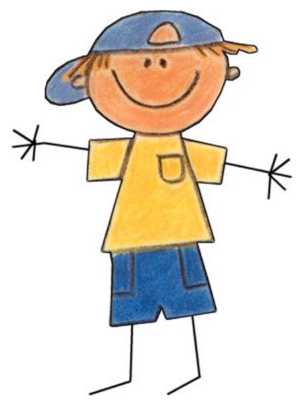Q1 - "You all enjoyed the previous blog right?"
Q2 - "So what are your comments on my previous blog?"
Q1 - "Is there a difference between the above two questions?"
Q2 - "What do you think about the above two questions?"
Now, are we able to see the difference between the Q1 questions and the Q2 questions? The answer that I am expecting from you is "YES". This is exactly what we are going to talk about – The expected answer seeking syndrome. J And the largest community that is suffering from this syndrome is the teaching community. And they religiously pass on this syndrome to generations after generations. Please don't mistake me that I am being very pessimistic about the teacher community. Are you getting me wrong? NO…? YES…? NO…? This is when we really get confused and the syndrome works out really well.
 Tell me if you have not been put in such a situation, where you are been asked a question. You answer and the tone of the teacher would tell you that the answer that you gave was not the expected answer and if you are intelligent enough, you would take the clue and change your answer without even understanding the reason!
Tell me if you have not been put in such a situation, where you are been asked a question. You answer and the tone of the teacher would tell you that the answer that you gave was not the expected answer and if you are intelligent enough, you would take the clue and change your answer without even understanding the reason! Tell me if you have not experienced a situation where you want to tell something but you KNOW somehow that the person who is asking the question will not be pleased by your answer and you just give out the answer that would please the questioner!
This syndrome is the greatest enemy of creativity. If I am suffering from this syndrome I rarely appreciate unique and creative answers. I would even say I don't understand what it means to be creativity or I would not be able to appreciate seeking unique answers. It is just not there in my dictionary.
Rewind a bit to the school days and recollect such incidents. A question in a 3rd standard annual exam – "_______ adds beauty to face?" Without the context of a lesson you could answer smile, hair, makeup or whatever you want. But in the context of the lesson 'Teeth' the expected answer is – teeth. While the teacher was teaching this topic I remember a child got up and asked "Ma'am, a child is not having teeth but still it is so beautiful right?"
What a brilliant observation and question. But the question was lost in the syndrome. The teacher just smiled and asked the students to underline the word teeth in the sentence – Teeth adds beauty to the face.
Coming late – How many teachers would have got irritated even if we had genuine reasons? "Look at his audacity. Why can't you just say sorry?' So the expected answer is just sorry and the teacher would be satisfied with that.
Imagine the situation where a principal has a doubt that a particular teacher has not been teaching well and he wants to prove that her students know nothing. When the objective is to prove that the students are stupid the questions will be framed in a way that the students will be seen to be stupid. It is as simple as that. And even among them if some student is trying to make a mark he would not even be appreciated and even more tougher questions will be thrown.
The only solution for this problem is…
I am sorry. I don't know. J Please leave your comments on what you think on this topic.
"You enjoyed the blog right?" J
J
J


